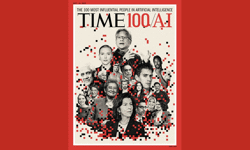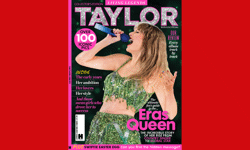
British Vogue’s three cover stars represent the millions of people in the UK who, at the height of the pandemic, in the face of dangers large and small, put on their uniforms and work clothes and went to help people, says Vogue.
Edward Enninful Editor in Chief, British Vogue, said: “If you had told me at the beginning of the year that Vogue’s July cover stars would be Narguis Horsford, a train driver on the London Overground, Rachel Millar, 24, a community midwife in east London, and Anisa Omar, a 21 year old supermarket worker in King’s Cross, I might not have believed you. But I can think of no more appropriate trio of women to represent the millions of people in the UK who, at the height of the pandemic, in the face of dangers large and small, put on their uniforms and work clothes and went to help people.”
Photographer Jamie Hawkesworth captured a few of the extraordinary people who are putting their health at risk for the rest of the nation in a 20 page portfolio for the July issue of British Vogue. All expressed a renewed pride in what they, and their colleagues, do, but none saw themselves as exceptional.
Travel limitations meant that Hawkesworth had to remain in London, where he lives, but his pictures tell a story that will be familiar across Britain - and the rest of the world. It is an uplifting tale of kindness and revived community spirit, of people pulling together. But it is one that also freshly exposes the deep inequalities in our society, says Vogue.
Narguis Horsford, train driver, said: “I don’t feel anxious about going to work. One morning at Barking, as I was changing ends, a lady smiled at me and said, ‘Thank you, driver.’ I smiled and said, ‘You’re welcome.’ I felt such a sense of pride.”
“I am no hero, but I’m proud of being a train driver and the essential role we are playing during the coronavirus crisis. Our services are vitally important to keep London moving throughout these unprecedented times and maintaining safety, to ensure our key workers can get to where they need to be to provide the services that are required.”
Rachel Millar, community midwife, said: “One of the hardest moments for me during the pandemic was when I had my bike stolen. If you’ve ever watched Call the Midwife, you’ll know the importance of two wheels to an east London midwife, especially when we’re desperately trying to avoid public transport. Having to carry on working for the rest of the week, maintain good morale, and be that reassuring voice to worried parents was made slightly more difficult.”
“But, within a few hours, a friend who also works at Homerton Hospital had raised over £500 online to help get me back on the road. Another colleague tweeted the story and within an hour, a local company had donated a brand new electric bike. It’s just one example of the community support and kindness that I’ve seen over the past few months, and what initially drew me to work in Homerton Hospital and the surrounding area. To say that I’m proud of my work family, and my wider community’s response to this pandemic, is an understatement.”
“After the 8pm clapping fades, I hope the NHS won’t be forgotten. To resume to ‘normal’ would be a step in the wrong direction.”
Anisa Omar, supermarket worker, said: “Before the pandemic, people would look at us as service assistants – we’re there to show them where the eggs are or if they want to complain about something. But now they’re a lot more understanding. They understand that we’re here all the time, and they don’t have to leave their houses. People are a lot nicer, they’re warmer.”
“It’s nice being a key worker. My job was not something that was that big of a deal before. But now it’s like we’re important. We have to be here, regardless of what’s happening in the world. It’s more than just a job now.”












